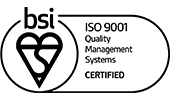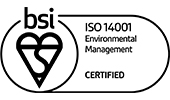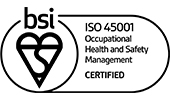Anti-bribery Policy
1.1 Paramount D&B Ltd (“the Company”) values its reputation for ethical behaviour and for financial probity and reliability. It recognizes that, aside from any criminal act, involvement in bribery will reflect adversely on its reputation and image. It therefore seeks to limit its exposure to bribery by setting out a clear Anti-Bribery Policy and by implementing and enforcing systems to counter bribery.
2.1 Under the UK Bribery Act 2010, bribery and corruption is punishable for individuals by up to ten years imprisonment. If the Company is found to have taken part in the corruption, or lacks adequate procedures to prevent bribery, it could face an unlimited fine and be barred from tenders for government contracts.
3.1 It is the Companies’ policy to conduct all aspects of its business in an honest and ethical manner at all times.
3.2 This policy applies to all individuals working for the Company, including anyone providing services to the Company such as consultants, or contractors.
3.3 The aim of this policy is to help the Company act in accordance with the Bribery Act 2010 to maintain the highest possible standards of business practice and advise individuals of the companies ‘zero-tolerance’ to bribery.
4.1 The company will not:
- Make contributions of any kind with the purpose of gaining any commercial advantage;
- Provide gifts or hospitality with the intention of persuading anyone to act improperly or to influence a public official in the performance of their duties;
- Make, or accept, “kickbacks” or facilitation payments of any kind.
4.2 The company will:
- Keep appropriate internal records that will evidence the business reason for making any payments to third parties;
- Encourage employees to be vigilant and to raise concerns about any issue or suspicion of malpractice, bribery or potential offers of bribery as early as possible;
- Provide employees with suitable channels of communication and ensure that sensitive information is treated appropriately;
- Ensure that anyone raising a concern about bribery will not suffer detriment as a result, even if they turn out to be mistaken;
- Rigorously investigate instances of alleged bribery and assist the police and other appropriate authorities in any resultant prosecution;
- Take firm and vigorous action against any employee(s) involved in bribery.
5.1 A “bribe” is a financial or other advantage offered or given to anyone to persuade them to perform, or reward them for performing, their duties improperly or with the intention of influencing them in the performance of their duties.
5.2 “Hospitality” is the practice of being hospitable this includes receiving and entertaining guests and visitors, and the giving and receiving of promotional gifts of low value.
5.3 “Kickbacks” or “facilitation payments” are classed as bribes. Typically these are payments (or goods and services in kind) made in return for a business favour or advantage e.g. securing a contract, or to induce officials to perform routine functions which they are obligated to perform. (Legally required administrative fees or fast-track services are not facilitation payments and are not bribes, and can continue to be paid)
6.1 Employee Responsibility
6.1.1 The Company prohibits employees from the offering, giving, solicitation or acceptance of any bribe, whether cash or other inducement to or from any person or company, wherever they are situated and whether they are a public official or body or private person or company.
6.1.2 No employee may gain any commercial, contractual or regulatory advantage for the Company or themselves in a way which is unethical. Should an employee be found to have taken part in bribery then it will be treated as a disciplinary offence.
6.1.3 It is the responsibility of all employees to prevent and report conduct which has taken place which you suspect is a bribe or corrupt behaviour. Any such incidents should be reported to their Line Manager or a Director.
6.1.4 A bribery statement is included in the Staff Handbook (see attached Appendix A) and the subject is included in the induction process for new employees.
6.2 Non compliance
- Staff – Failing to observe Company policy may lead to disciplinary action in accordance with the Company’s Disciplinary Policy;
- Visitors – In the event of a breach of the policy by other organisations, or individuals, the Company will take appropriate action.
6.3 Monitoring
Monitoring of the policy is essential to assess how effective the Company has been in meeting its legal obligations. The policy will be monitored on an ongoing basis to ensure that it addresses issues effectively. The following will be monitored:
- That all individuals working for the Company are advised of the policy.
- Assessment of any reported incident or related occurrence.
6.4 Reviewing Policy
This policy will be reviewed and, if necessary, revised in the light of legislative or organisation changes. Improvements will be made by learning from experience, and an annual review will be conducted by Management Team.
6.5 Policy Amendments
Should any amendments, revisions, or updates be made to this policy it is the responsibility of the Management Team to see that all relevant employees receive written notice. Training should also be if considered if appropriate.
7.1 Corporate hospitality can fall within the ambit of the Bribery Act 2010. The Act does not intend to penalise genuine hospitality or similar business expenditure for “legitimate commercial purposes”, provided it is reasonable and proportionate. The Act intends to capture “lavish corporate hospitality which … an attempt to secure advantages”.
7.2 The Company therefore may legally continue to provide tickets to sporting events, take clients to dinner, offer gifts to clients as a reflection of our good relations, or pay for travel and accommodation expenses in order to demonstrate our services to clients if that is reasonable and proportionate.
7.3 Hospitality should reflect a desire to cement good relations and show appreciation, and promotional expenditure should seek to improve the Company’s image as a commercial organisation, to better present its services, or establish cordial relations. The recipient should not be given the impression that they are under an obligation to confer any business advantage or that the recipient’s independence will be affected.
7.4 The Company has therefore set a de minimis level of £250 spend per person: any hospitality which is given or received over this de minimis must be reported to the Management Team and prior approval obtained.
8.1 The Company recognises that market practice varies between its contractors and clients and what is normal and acceptable in one place may not be in another. This policy prohibits any inducement which results in a personal gain or advantage to the recipient or any person or body associated with them and which is intended to influence them to take action which may not be solely in the interests of the Company.
8.2 Decisions as to what is acceptable may not always be straightforward. If any employee is in doubt as to whether a potential act constitutes bribery, the matter should be referred to a member of the Management Team. Examples of potential risks
8.3 The following is a non-exhaustive list of possible issues which raise bribery concerns and which you should report in accordance with the reporting procedure set out above:
- a third party insists on receiving a commission or fee before committing to signing a contract with the Company;
- a third party requests payment in cash, or refuses to sign a formal commission or fee agreement, or to provide an invoice or receipt for a payment made;
- a third party requests an unexpected commission or fee to facilitate a service;
- a third party demands lavish or excessive gifts or hospitality before commencing or continuing contractual negotiations or provision of services;
- you are offered an unusually lavish or excessive gift or hospitality by a third party;
- you receive an invoice from a third party that appears to be non-standard;
- the Company is invoiced for a commission or fee payment that appears large given the service stated to have been provided.
9.1 The Company will adhere to the Ministry of Justice guidance principles which should be followed at all times. These are:
- Proportionate procedures
- Top level commitment
- Risk assessment
- Due diligence
- Communication (including training)
- Monitoring and review
Final responsibility for this policy rests with Richard Jones, Managing Director
Day-to-day responsibility for implementing this policy is delegated to Stephen Mullis, Head of Corporate Services, Compliance Officer

Richard Jones
Chief Executive Officer
November 2022








